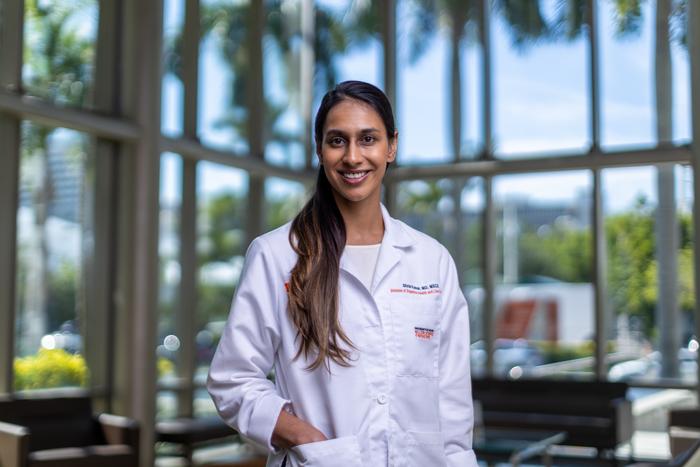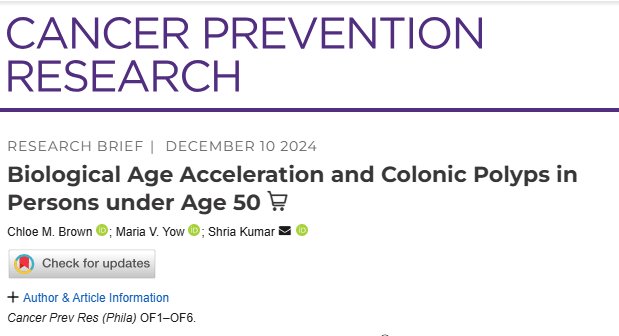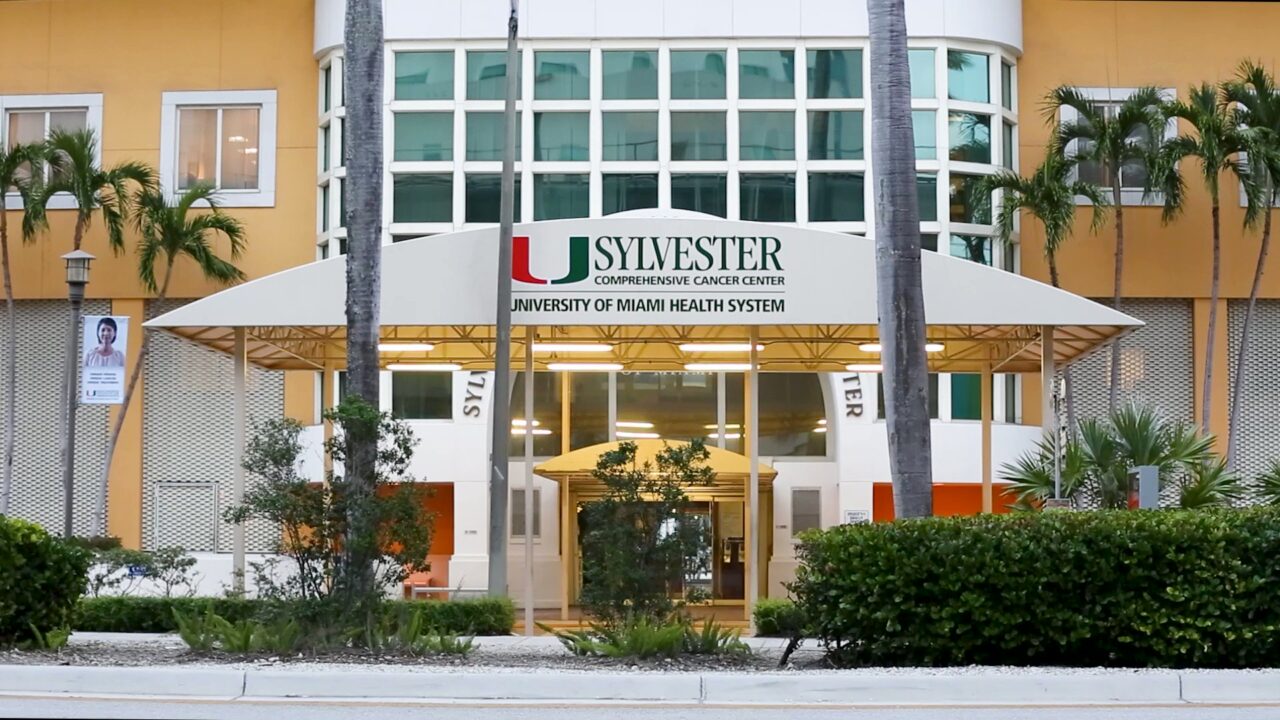New Research Suggests Accelerated Agers May Benefit From Early Screening
New research from Sylvester Comprehensive Cancer Center at the University of Miami Miller School of Medicine suggests that one’s biological age, which can be higher than his or her chronological age – a concept called accelerated aging – may predict who’s at risk for developing colon polyps, a known risk factor for colorectal cancer.
The findings, published in Cancer Prevention Research, a journal of the American Association for Cancer Research, link accelerated aging to increased early colorectal cancer risk and indicate that those aging faster than their actual age – accelerated agers – may benefit from early colon-cancer screening. Early detection has been shown to improve both treatment options and outcomes for this disease.
Unlike chronological age, which simply counts years lived, biological age is based on physiological markers that reflect the impact of genetics, lifestyle choices and environmental factors. It’s determined through sophisticated DNA analysis.
“Biological age is an interesting concept, and it leads to the idea of accelerated aging, when your biological age exceeds your chronological age.
It sounds pretty theoretical, but actually accelerated aging has been shown to be predictive of time to death and even of multiple cancers,” Kumar continued, noting that this line of research adds to a growing area of study within epigenetics, which examines the mechanisms behind deteriorating cell functions.
For example, if someone is 50, but his or her biological age is 55, that’s five years of accelerated aging that might be reflected in overall body functioning,” – explained Shria Kumar, MD, a colorectal cancer researcher at Sylvester and the study’s senior and corresponding author.

Rising Rates in Younger People
Colorectal cancer rates in people under 50, called early-onset colorectal cancer, have been rising. Since 2011, these rates have been increasing by 2% a year in people younger than 50, according to the American Cancer Society.
Accordingly, researchers have been striving to determine the best age to begin screening for colorectal cancer. The U.S. Preventive Services Task Force has lowered its recommended starting age from 50 to 45.
However, this change might not be sufficient to fully address the problem, Kumar noted, because half of early-onset colorectal cancers occur in people under 45, according to the latest statistics from the National Cancer Institute.
Screening Methods
There are several ways to screen for colon cancer now, including more convenient stool-sample tests collected at home. But colonoscopy, a more invasive outpatient procedure that requires sedation in a medical facility, remains the gold standard.
During a colonoscopy, the doctor can identify and remove polyps, which are soft-tissue growths that can lead to cancer. Polyps are common, affecting about 20% to 30% of adults, and removing them during colonoscopy can prevent colon cancer.
“What’s really, I think, exciting about the opportunity in colorectal cancer is that we have a clear prevention tactic. Colonoscopy is not only early detection, but also cancer prevention,” – Kumar said.
Analyzing Biological Age
Some factors that raise a person’s risk of early-onset colorectal cancer also elevate biological age. These include obesity, smoking, alcohol consumption and other lifestyle habits.
For this study, Kumar and Sylvester colleagues Chloe Brown and Maria Yow investigated biological age as a risk factor for colorectal cancer by studying people under 50 who were having colonoscopies. The team assessed patients’ biological age through extensive DNA analysis of blood samples and compared it with their colonoscopy results.
They discovered that each year of accelerated aging correlated with a 16% increased risk of developing polyps. Interestingly, the study did not link other factors, such as body-mass index and smoking history, to polyp risk. But it did find that gender was the strongest risk factor for polyps.
“While I think the biological age finding is interesting and, maybe, exciting, the strongest risk factor for having a pre-cancerous polyp remains male sex. While we continue to look at biological age and other risks, we also need to evaluate why sex is such a differential risk factor,” – Kumar explained.
Key Takeaways
The authors believe risk-based screening for colorectal cancer focused on people with accelerated aging could yield beneficial results.
“If we can develop a practical model to really identify and target higher risk people and put them through colonoscopy, we can prevent their cancers,” Kumar explained.
She noted that her team will need to conduct more research with larger sample sizes to obtain a clearer picture.
“Aging is multifaceted, and we need larger studies to establish whether most people’s biological age is the same as their chronological age.
It is pretty striking that multiple studies, including ours, have found that biological age provides distinct health information and that could help us prevent cancer,” – she said.
Title: Biological Age Acceleration and Colonic Polyps in Persons Under Age 50
Authors: Chloe M. Brown and Maria V. Yow, Sylvester Comprehensive Cancer Center, University of Miami Miller School of Medicine; and Shria Kumar, MD, Sylvester Comprehensive Cancer Center, Division of Digestive Health and Liver Diseases, University of Miami Miller School of Medicine.

Funding: Shria Kumar is supported by an ASCO Conquer Cancer Career Development Award (2023CDA-9764863415) and the Sylvester Comprehensive Cancer Center (5P30CA240139). Additional support was provided by the Woman’s Cancer Association of the University of Miami.
Further Reading:
What 99% of people don’t know about Colorectal Cancer
Immunotherapy for Colorectal Cancer
November 2024 Tip Sheet of Sylvester Comprehensive Cancer Center


